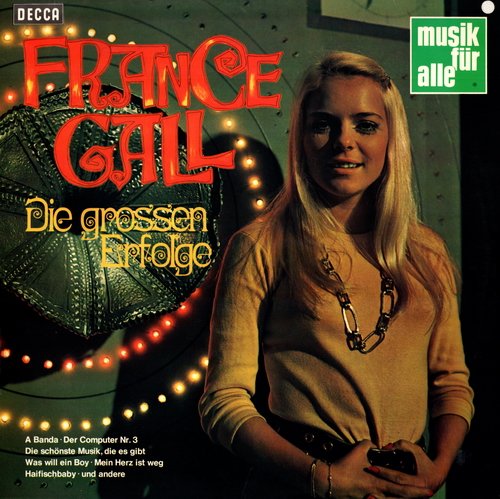Robin Holcomb, Talking Pictures With Wayne Horvitz - The Point Of It All (2010)
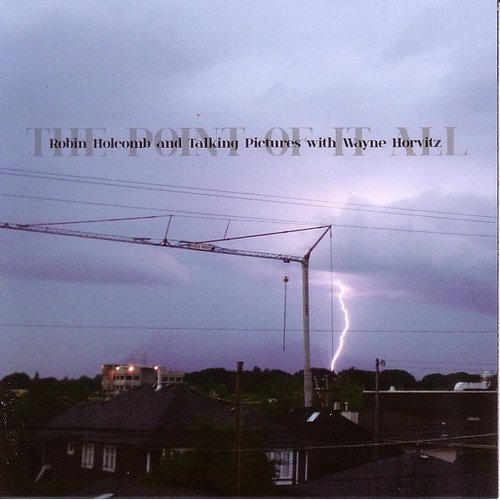
Artist: Robin Holcomb, Talking Pictures With Wayne Horvitz
Title: The Point Of It All
Year Of Release: 2010
Label: Songlines Recordings
Genre: Contemporary Jazz
Quality: FLAC (tracks) / MP3 320 Kbps
Total Time: 01:06:23
Total Size: 385 Mb / 160 Mb
WebSite: Album Preview
Tracklist: Title: The Point Of It All
Year Of Release: 2010
Label: Songlines Recordings
Genre: Contemporary Jazz
Quality: FLAC (tracks) / MP3 320 Kbps
Total Time: 01:06:23
Total Size: 385 Mb / 160 Mb
WebSite: Album Preview
01. Interlude (6:02)
02. The Sweetest Thing (3:01)
03. Buttermilk Hill Suite (6:34)
04. Sad Waltz (6:00)
05. The Point of It All (3:34)
06. Couch Alternate [Alternate] (3:44)
07. Tiny Swing (3:10)
08. Against the Drift (3:12)
09. 10.15.07 (7:55)
10. After the Gold Rush (4:14)
11. The Scavenger Song (4:06)
12. Electrical Storm (4:34)
13. The Rain (10:17)
Performers:
Robin Holcomb: piano, voice
Wayne Horvitz: Hammond M-3, piano (3)
Ron Samworth: electric guitar, acoustic guitar
Bill Clark: trumpet, flugelhorn (2)
Peggy Lee: cello; Dylan van der Schyff: drums.
An unspoken rule amongst musicians is: don't date someone in the band, let alone marry them. Still, there are exceptions, one of the most notable being the husband/wife team of singer/songwriter Robin Holcomb and keyboardist Wayne Horvitz. Together for three decades, they've intersected when the time is right, while still maintaining absolute independence through their rich, individual discographies. Holcomb first came to attention with two records for Elektra/Nonesuch—Robin Holcomb (1990) and the especially fine Rockabye (1992), which married an affinity for rock-tinged folk music with an unmistakable Americana bent, the oblique influence of classical composers like Charles Ives, and a strange, skewed harmonic approach that clearly came from the jazz vernacular. Her fragile singing—with its trembling falsetto and oftentimes hushed delivery—was also a definitive voice on guitarist Bill Frisell's Nashville (Nonesuch, 1996).
Despite its alternating piano solos, the distinctive personalities on Holcomb and Horvitz's shared Solos (Songlines, 2004), were absolutely unmistakable, while as Varmint, they went the alt-country route on Mr. Man in the Moon (Self Produced, 2008). Released under Holcomb's name, The Point of It All focuses largely on the singer/songwriter's original material, and documents her first recorded collaboration with Vancouver, Canada-based Talking Pictures, whom Holcomb and Horvitz first met in 2006. More than any other Holcomb release to date, The Point of It All's blend of form and freedom represents a fuller consolidation, coming closest to representing her varied musical interests. Lyrically, as ever, Holcomb's messages, while strong, are delivered gently, without a big stick.
An improvising quartet that, with cellist Peggy Lee and drummer Dylan van der Schyff—also members of trumpeter Dave Douglas' Nomads, heard on the pliant Mountain Passages (Greenleaf, 2005)—is the perfect match for Holcomb and Horvitz, Talking Pictures proves as capable of angular spontaneity ("Interlude") as it is subtler interaction on the dark-hued "The Sweetest Thing," and straightforward interpretation on the appropriately titled instrumental, "Sad Waltz," where trumpeter Bill Clark's boxy tone works perfectly with guitarist Ron Samworth's nuanced electric accompaniment.
The focus is on Holcomb's writing, but contributions from Lee (the haunting "Against the Drift") and Samworth (the knotty, maelstrom-like but ultimately soft-ending "The Rain") fit perfectly within Holcomb's strangely tilted continuum. The group also covers Neil Young's "After the Goldrush," here turned into something resembling chamber folk, with a strangely angular but round-edged instrumental introduction leading to Holcomb's significantly reharmonized reading of Young' iconic song.
Creating memorably melodic songs with often-direct but always poetic lyrics, Holcomb's off-kilter writing turns even relatively direct songs like Robin Holcomb's "Electrical Storm"—revisited here, with van der Schyff's gentle pulse contrasting with the original's sharper backbeat—more melancholy. Like Frisell, Holcomb reveres the essence of song and its improvisational possibilities; but unlike the guitarist, her focus is ever-shifting, sometimes leaning towards the extemporaneous, other times the idiosyncratic structures that give her songs form. Expansive and deeply resonant, but in the quietest fashion possible, The Point of It All perfectly melds Holcomb's divergent interests, with a group of musicians who seem perfectly connected to her evocative world on an empathic, telepathic level.
Despite its alternating piano solos, the distinctive personalities on Holcomb and Horvitz's shared Solos (Songlines, 2004), were absolutely unmistakable, while as Varmint, they went the alt-country route on Mr. Man in the Moon (Self Produced, 2008). Released under Holcomb's name, The Point of It All focuses largely on the singer/songwriter's original material, and documents her first recorded collaboration with Vancouver, Canada-based Talking Pictures, whom Holcomb and Horvitz first met in 2006. More than any other Holcomb release to date, The Point of It All's blend of form and freedom represents a fuller consolidation, coming closest to representing her varied musical interests. Lyrically, as ever, Holcomb's messages, while strong, are delivered gently, without a big stick.
An improvising quartet that, with cellist Peggy Lee and drummer Dylan van der Schyff—also members of trumpeter Dave Douglas' Nomads, heard on the pliant Mountain Passages (Greenleaf, 2005)—is the perfect match for Holcomb and Horvitz, Talking Pictures proves as capable of angular spontaneity ("Interlude") as it is subtler interaction on the dark-hued "The Sweetest Thing," and straightforward interpretation on the appropriately titled instrumental, "Sad Waltz," where trumpeter Bill Clark's boxy tone works perfectly with guitarist Ron Samworth's nuanced electric accompaniment.
The focus is on Holcomb's writing, but contributions from Lee (the haunting "Against the Drift") and Samworth (the knotty, maelstrom-like but ultimately soft-ending "The Rain") fit perfectly within Holcomb's strangely tilted continuum. The group also covers Neil Young's "After the Goldrush," here turned into something resembling chamber folk, with a strangely angular but round-edged instrumental introduction leading to Holcomb's significantly reharmonized reading of Young' iconic song.
Creating memorably melodic songs with often-direct but always poetic lyrics, Holcomb's off-kilter writing turns even relatively direct songs like Robin Holcomb's "Electrical Storm"—revisited here, with van der Schyff's gentle pulse contrasting with the original's sharper backbeat—more melancholy. Like Frisell, Holcomb reveres the essence of song and its improvisational possibilities; but unlike the guitarist, her focus is ever-shifting, sometimes leaning towards the extemporaneous, other times the idiosyncratic structures that give her songs form. Expansive and deeply resonant, but in the quietest fashion possible, The Point of It All perfectly melds Holcomb's divergent interests, with a group of musicians who seem perfectly connected to her evocative world on an empathic, telepathic level.

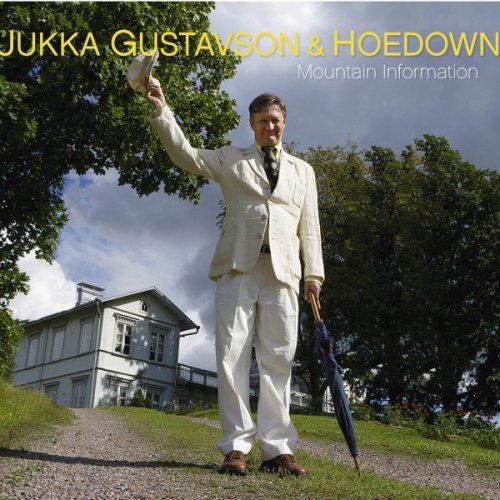
![Tyshawn Sorey - Monochromatic Light (Afterlife) (2026) [Hi-Res] Tyshawn Sorey - Monochromatic Light (Afterlife) (2026) [Hi-Res]](https://img.israbox.com/img/2026-02/09/o5oae6dg6j9xnkhwodjfrvr5v.jpg)
![Dela Hüttner’s SwingThing - Pause for a moment (2026) [Hi-Res] Dela Hüttner’s SwingThing - Pause for a moment (2026) [Hi-Res]](https://www.dibpic.com/uploads/posts/2026-02/1770561049_cover.jpg)
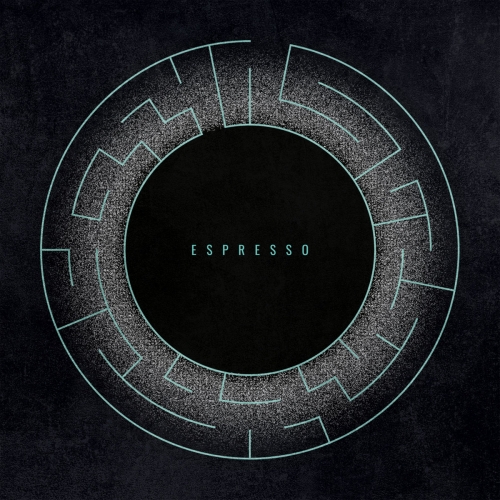

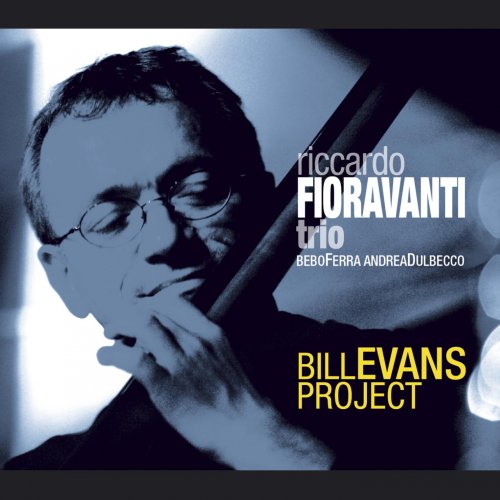
![Ravi Ramsahye PROTOTYPE - Sunglint (2026) [Hi-Res] Ravi Ramsahye PROTOTYPE - Sunglint (2026) [Hi-Res]](https://www.dibpic.com/uploads/posts/2026-02/1770729667_folder.jpg)
